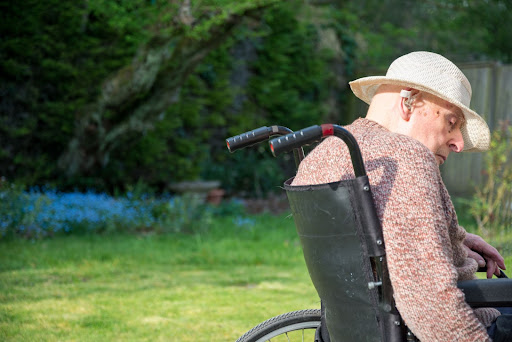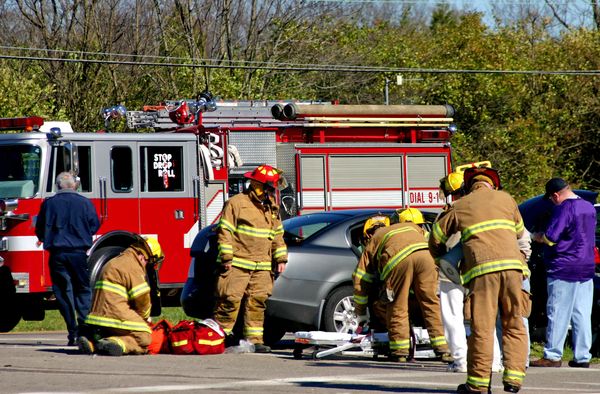A moderate to severe brain injury often causes permanent brain damage or the onset of dementia. Many brain injury victims require the specialized, 24-7 care provided in a nursing or memory care home. Unfortunately, many of these people are unable to advocate for themselves, and so are susceptible to those who would prey on the most vulnerable members of society.
The Brain Injury Association of America (BIAA) partners with community advocates across the country to raise awareness of brain injury nursing home patients’ rights and the signs of abuse or neglect that families should look for when visiting their loved ones.
Common brain injuries of nursing home residents
Memory care facilities are long-term care homes focused exclusively on meeting the needs of people with cognitive decline. Many brain injury patients live in one of these communities or nursing homes.
Common brain injuries that may require this level of care include:
- Traumatic brain injury
- Anoxic or hypoxic brain injury
- Dementia or Alzheimer’s Disease
- Cognitive decline associated with another condition, like Parkinson’s Disease
The impact of brain injuries on residents’ physical, cognitive, and emotional well-being
The personality changes and permanently changed abilities that come along with a moderate to severe brain injury often cause frustration for the brain injury victim. Many people may regress in physical capabilities, too, in addition to their cognitive decline.
Memory care programs focus on enhancing the quality of life for residents and slowing cognitive decline, such as:
- On-site physical, speech, and occupational therapies
- Pet therapy
- Aromatherapy
- Art and music programs
One of the most common symptoms of cognitive decline is a lack of impulse control and irritability. Caregivers and nursing home staff should be trained to soothe these behaviors while preserving their patients’ health and dignity. Brain injury nursing home abuse often occurs in response to a patient’s outburst. Reviewing the certifications and training of your loved one’s caregivers can help prevent a situation where an abusive caregiver lashes out.
If you suspect your loved one is being abused, contact a San Luis Obispo elder abuse attorney.
Legal rights of brain injury victims in nursing homes
People with a brain injury are protected under the Americans With Disabilities Act (ADA), which guarantees equal access to federal and state programs, medical care, and reasonable accommodations that allow someone to visit a public place or place of business.
In addition, brain injury victims may also receive protections under the Fair Housing Act (FHA), which permits reasonable modifications to accommodate their disability and prevents housing discrimination.
More specific rights for brain injury victims are addressed under the 1996 Traumatic Brain Injury Act (TBI Act). The Act includes grant programs administered by the Administration for Community Living (ACL), which provide funding for brain injury patient care and to provide broader access to services intended to treat TBIs.
So what does this mean for your loved one with a brain injury? First, the TBI Act has provisions to help them receive valuable rehabilitation and quality-of-life services. Second, the TBI Act provides resources for you to learn how to advocate for a loved one in a nursing home, including learning signs of abuse or neglect and how to report it.
Taking action: advocating for brain injury victims
Advocacy for brain injury victims can start at the local level, by petitioning city and state officials to support more programs for disability services to treat brain injuries. Understanding the protections of the ADA and how it benefits brain injury victims can help your family become more knowledgeable advocates for your loved one.
Each state has a long-term care ombudsman office tasked with advocating for the rights and needs of people in long-term care facilities like nursing homes and memory facilities. If you suspect brain injury nursing home abuse, you can report it to the California Long-Term Care Ombudsman Office. Investigators look into complaints and will take action against abuse.
Resources and support for brain injury victims and their families
Feeling grief and loss after your loved one suffered a serious brain injury is common. Many families find solace in support groups. Your loved one’s brain injury treatment team may be able to refer you to an in-person group close by.
The TBI Bridge offers virtual support groups at different times. Families can also find resources, support networks, and more information about brain injury advocacy on the St. Jude Brain Injury Network’s website. The program also offers online videos and articles about brain injury research, treatment, and developments that may be available to your loved one.
Lastly, Ernst Law Group also has an array of resources for brain injury victims and their families.
Are you worried about your loved one?
We can help. The legal team at Ernst Law Group can investigate a possible case of nursing home abuse in California and give you legal recourse to seek justice on behalf of your loved one. Contact us today at (805) 541-0300 for a free consultation.
We’re happy to serve injured parties in the following areas:





